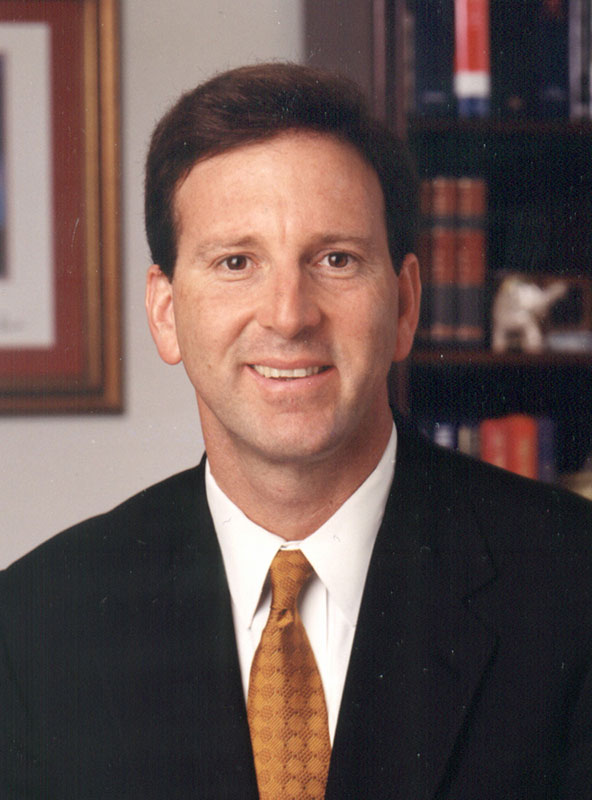 By Antonio Garza, former U.S. Ambassador to Mexico
By Antonio Garza, former U.S. Ambassador to Mexico
Mexico’s Congress will soon approve the secondary legislation tied to the landmark energy reform it passed last December. The legislative package, expected to pass this summer, addresses 21 laws necessary to implement the reform and support its goals of transparency, competition and growth. Anticipation of a new energy era in Mexico is building and expectations for the reform’s beneficial economic effects are great.
The legislative discussions now center on four largely technical issues, all of which could have a profound impact on the economic viability and attractiveness of investing in energy projects in Mexico. They include the competencies and capacities of the newly constituted regulatory agencies; taxation of companies engaged in exploration and production; liability exposure in cases of deepwater accidents; and landowner rights to surface property in areas where shale gas drilling may occur.
The prospect of liberalization in Mexico’s energy sector has long been of interest to global oil companies and service providers. The country’s resources (proven and prospective) are enormous; an estimated 42 billion barrels of oil equivalent at the end of 2013. Deepwater and unconventional are especially attractive given that fiscal and technological constraints have largely prevented Pemex (the national oil company) from developing much of them. Pemex’s woes, in fact, have led to production declines on the order of 1 million barrels per day, since 2004.
The energy reform represents the government’s attempt to arrest this decline and realize the potential of the country’s massive reserves. It also seeks to convert Pemex (as well as the national electricity company, CFE) into an efficient, productive and competitive enterprise and to establish a sounder and more sustainable fiscal regime for the federal budget, which has depended heavily on Pemex revenues.
The transformative effects of Mexico’s energy reform will be felt throughout the country, but they will be most visible in its hydrocarbon-rich northeast. In fact, a substantial portion of Mexico’s prospective reserves — unconventional and deepwater — are direct extensions of commercially productive U.S. formations, such as the Eagle Ford in Texas (known as the Burgos Basin in Mexico) and deepwater Gulf of Mexico.
This shared geology means that Texas, from Brownsville to El Paso, will be on the frontlines of much of the change that Mexico’s energy reform will unleash. It is a familiar position for the state and is evocative of the moment 20 years ago when NAFTA entered into force and initiated a process of far-reaching economic change throughout the U.S.-Mexico border region.
Mexico can, in fact, look to South Texas for an indication of the kind of transformation that its energy reform will likely bring to its northern border. The natural gas production boom enabled by new techniques such as hydraulic fracturing (“fracking”) and horizontal drilling took off around 2009 in Texas. The economic impact of the subsequent boom in a roughly 20-county region has been huge. And, while communities in the region have by and large welcomed the positive economic benefits of the boom, the growth has not come without its challenges.
For Mexico’s border region, it’s important not to lose sight of this reality.
Consideration must be given early to preparing for those impacts in communities that exist in a zone that already struggles to keep pace with demands. While new economic activity and tax revenues will bring a welcome infusion of funds to government coffers, the demands of a boom in energy drilling activity, particularly in more remote areas, will be challenging.
Improved infrastructure will top the list of demands, with transportation and mid-stream capacity, an area of immediate need. Improvements in water and wastewater infrastructure, electricity generating and telecommunications services will be necessary. And the need for new housing, schools, and health care facilities will explode. Also, not to be overlooked: public safety and such environmental concerns as increased air and water pollution and sustainable water supplies — all will need attention.
In deepwater, arguably Mexico’s most promising frontier, the challenge will be in attracting the level of private investment necessary to boost production. Pemex lacks expertise in deepwater development, so opening this up to foreign companies should speed that process. It should also attract much-needed money, technology and know-how to Pemex, which in the fall (some say mid-September) will know which fields it can reserve to itself under the so-called “Round Zero.”
Officials are giving a mid-to-late- 2015 date for issuing the first big set of contracts for oil and gas development—including deepwater blocks. For now, the reform has piqued the interest of global players, who eagerly await the details of the secondary legislation to decide if the investment proposition Mexico offers is attractive enough to warrant commitment over other resource-rich countries.
Mexico’s reform of its energy sector brings the promise of new opportunity for the country. Investment, cross-border collaboration, and a more strategic approach to development will all be necessary to ensure that changes the energy opening brings to Mexico and our region are positive, and truly benefit the people of both countries.
We asked former U.S. Ambassador to Mexico, Antonio Garza, to contribute the following piece because we felt that he is well positioned to comment on the complex legal, cultural and political landscapes in Mexico and the United States. Mr. Garza served seven years as the U.S. Ambassador to Mexico (2002-09), and is acknowledged as one of the top experts on U.S.-Mexico relations. He previously held statewide elected office in the U.S. serving as chairman of the Texas Railroad Commission, the lead regulator for the Texas energy sector, and earlier in his career served as Texas’ 99th Secretary of State where he was tasked with serving as the state’s lead liaison on border and Mexico policy. The Ambassador began his public service along the U.S./Mexico border as Cameron County Judge. He is a lawyer and currently serves as counsel in the Mexico City office of White and Case LLP.
Mr. Garza can be reached at www.tonygarza.com







